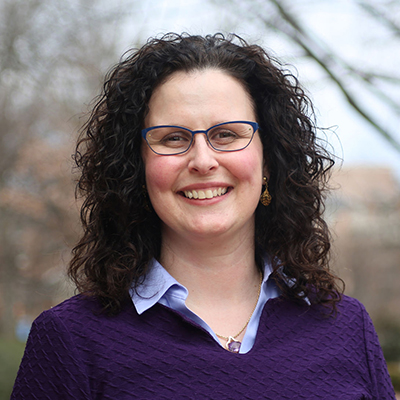PhD
Associate Professor
Director of Applied Epigenetic Screening Technologies, Center for Integrative Chemical Biology and Drug Discovery
UNC-Chapel Hill
Molecular Therapeutics
Area of Interest
The Pattenden lab develops innovative techniques in chromatin-based therapeutic target discovery and cancer diagnostics. Our research program enables discovery of novel molecular targets, pathways and mechanisms. As appreciation of the importance of chromatin dysregulation in cancers has grown, chromatin regulatory proteins have emerged as promising targets for therapeutic discovery. By focusing on this protein class, we capitalize on the dynamic properties of chromatin, in contrast to irreversible genetic mutations. Currently, however, there are very few in vivo chromatin-based assays that are suitable for high throughput screening campaigns. We and others have demonstrated that characteristic chromatin accessibility patterns in tumors can change following treatment with small molecule inhibitors. Consequently, chromatin accessibility is a potential strategy to screen for chemical inhibitors, to assess pharmacodynamics, and to establish biomarkers for preclinical and clinical trials. In collaboration with Dr. Ian Davis (UNC, Genetics), we have developed a novel high throughput screen for small molecule inhibitors of aberrant chromatin accessibility in cancer. This approach enables discovery of compounds that affect an underlying chromatin defect without a priori target selection, which avoids the pitfalls associated with in vitro single candidate protein screens that exclude unknown or unappreciated molecular targets, activities and molecular dependencies. To assess the diagnostic potential of chromatin accessibility patterns in tumor cells, we have invented a method for extraction of chromatin from formalin fixed, paraffin embedded (FFPE) tissue, which incorporates a patented cavitation enhancement reagent from Dr. Paul Dayton (UNC, Biomedical Engineering).
Awards and Honors
- IBM Junior Faculty Development Award, University of North Carolina at Chapel Hill, 2016
- NSERC Postdoctoral Fellowship, Natural Sciences and Engineering Research Council of Canada, 2004-2006
- Professional Development Award, Stowers Institute for Medical Research, 2004
- Vision Science Research Program Fellowship, Ontario Student Opportunity Trust Fund, University of Toronto, 2003
- Vision Science Research Program Fellowship, Ontario Student Opportunity Trust Fund, University of Toronto, 2002
- Frank Fletcher Memorial Fund, Ontario Student Opportunity Trust Fund Fellowship, University of Toronto, 2001
- KM Hunter/MRC Doctoral Research Fellowship, Canadian Institutes of Health Research, 2000-2003
- Frank Fletcher Memorial Fund, Ontario Student Opportunity Trust Fund Fellowship, University of Toronto, 2000
- University of Toronto Open Fellowship, University of Toronto, 1999
- Frank Fletcher Memorial Fund, Ontario Student Opportunity Trust Fund Fellowship, University of Toronto, 1999
- University of Toronto Open Fellowship, University of Toronto, 1998

